Positive Parenting: Staying Upbeat When You're Feeling Defeated about Baby-Led Weaning with Candice Jones, MD
- Where to get support for your feeding choices if your family and friends aren't on board with BLW
- What to do when feelings of doubt creep in about deciding to skip traditional spoon-feeding
- How to reframe discussions and the words to use to implement positive parenting in your household
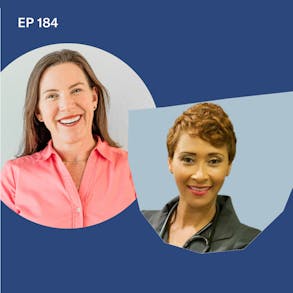
LISTEN TO THIS EPISODE
Episode Description
Ever have any clouds of doubt hanging over your head with regard to feeding your baby? Like maybe you were all gung-ho about baby-led weaning at the beginning, but pushback from family and friends or fears about feeding are getting in the way of your success.
It’s one thing to say “be positive”, but it’s another to learn the skills that will really help you do so! In this episode I’m interviewing pediatrician, author and parenting expert Dr. Candice Jones about positive parenting and how we can stay upbeat even when feeling defeated about doing baby-led weaning.
About the Guest
- Dr. Jones is a board certified pediatrician, author and podcast host specializing in Positive Parenting
- She just authored the brand new book “High Five Discipline” with the American Academy of Pediatrics

Links from this Episode
- Read Dr. Candice Jones’ new book “High Five Discipline: Positive Parenting for Happy, Healthy, Well-Behaved Kids”
- Listen to Dr. Candice Jones’ podcast Kidding Around here
- Follow Dr. Candice Jones on Twitter here and she’s on Instagram here
- Baby-Led Weaning with Katie Ferraro program with the 100 First Foods™ Daily Meal Plan, join here: https://babyledweaning.co/program
- Baby-Led Weaning for Beginners free online workshop with 100 First Foods™ list to all attendees, register here: https://babyledweaning.co/baby-led-weaning-for-beginners

Latest Episodes
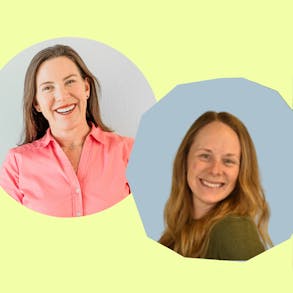
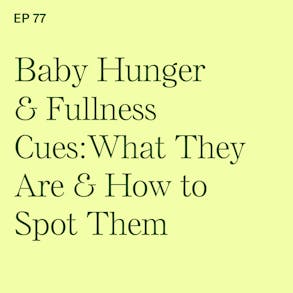
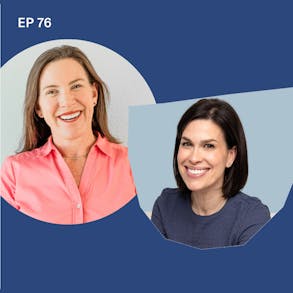
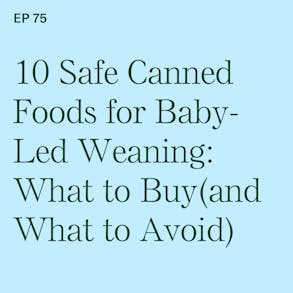
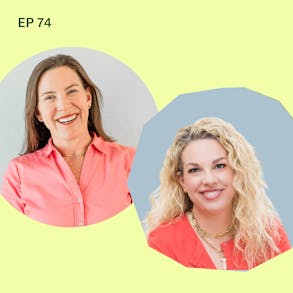
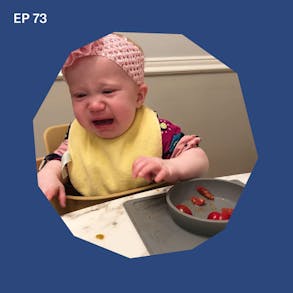
Candice Jones (1s):
Don't get discouraged. Everybody goes through this at one point or another and your baby's always changing. So just ride that way and have some good solid advice from someone who knows what they're talking about. Instinct to it.
Katie Ferraro (16s):
M Katie Ferraro, Registered Dietitian college nutrition, professor and mom of seven specializing in baby led weaning here on the baby led weaning made easy podcast. I help you strip out all of the noise and nonsense about feeding, leading you with the competence and knowledge you need to give your baby a safe start to solid foods using baby led weaning. Well, Hey there, and welcome back today. We're talking about Positive Parenting techniques and how do you stay upbeat when you're feeling defeated about your feeding decisions? It happens all the time. I hear it from parents there. I was all gung-ho about my decision to do maybe Led Weaning at first and then these feelings of doubt creep in and I'm starting to feel defeated or discouraged about my decision to skip traditional spoon-feeding.
Katie Ferraro (1m 6s):
My guest today is pediatrician and author, Dr. Candice Jones. She is such an amazing expert. She is 100% here to support you in your feeding decisions with your family, from your baby's first bites. And she does that by teaching about this concept of Positive Parenting. So Dr. Jones is the author of a just released brand new book called high five discipline, Positive Parenting for happy, healthy, well behaved kids. And I wanted to interview her to pick her brain about Positive Parenting, because I'm going to be honest as the frazzled mom of seven small kids, I work full time. I don't have a ton of patients to begin with. The idea of Positive Parenting is like something I'm in love with, but in reality, I'm like I need some help and some expertise.
Katie Ferraro (1m 47s):
So it was kind of a self-serving episode here. Cause I need to pick up some skills as well, but it's just that language does not come naturally to me. I have to practice my inclination. I don't know about you guys, but when my babies are dropping food on the floor, I say like, no, don't do that. Or I'll snap back at someone who questions my decision to skip traditional spoonfeeding and do baby led weaning. But Dr. Jones doesn't, she is a pro she's all about positive parenting with practical tips and tricks to help you keep your stuff together when your baby makes you want to lose it. So with no further ado, I want to introduce you to Dr. Candice Jones in this episode, all about Positive Parenting, Staying Upbeat when you're feeling defeated about baby Led, Weaning,
Candice Jones (2m 29s):
Thank you so much for having me.
Katie Ferraro (2m 31s):
Now, this is an honor to interview. You I've really admired your ambitious work, particularly your passion for sharing information that's easily accessible at all times. Like I think that's so key this day and age for parents and for those of my audience members who haven't been familiarized with your work, could you tell us a little bit about yourself and then why did you decide to pursue a career in medicine and in particular pediatrics?
Candice Jones (2m 53s):
Sure. Well, I'm Dr. Candice Jones. I am a board certified pediatrician. I live in the suburbs outside of Orlando, Florida, but I practiced in Orlando at Edgewater pediatrics. And so I always knew I wanted to be a doctor. If you ask anyone in my family, they'll tell you since they can remember about four or five years of age, I would always say, I want it to be a doctor. I had an early influence in my mom is being a obstetric nurse. So she helped to deliver babies and I, my interest kind of peaked from there. And I never changed my mind as far as pediatrics. I didn't declare what I wanted to do in medicine until I did my third and fourth year of clinical rotations in medical school.
Candice Jones (3m 41s):
And I just really fell in love with kids and families and felt the impact and the potential there to build healthy lives. So I definitely loved the kids and I loved that influence to just be with a family and be with the child from birth up until young adulthood. And so I call myself an auntie with my patients and families. And so I definitely feel like I'm a part of the family. Well, I've heard
Katie Ferraro (4m 10s):
You speak a number of times or we've worked together on some projects. I love listening to your podcast and it always strikes me how upbeat you are. I'm like, where did she find the time to do all this stuff? Like write a book and see patients and doing the podcast interviews. And I know you have this passion for Positive Parenting, and I just wanted to ask, if you could share a little bit about your philosophy and your approach to this topic, like what is Positive Parenting?
Candice Jones (4m 33s):
You see it Positive Parenting is simply that process of raising or rearing your child in a way that supports their development and their overall health and wellbeing. And so it just gets back to good relational health and making sure that's established from the time your baby is born with bonding insecure attachment also with connecting with your child as they grow, supporting their developmental needs. And it's also about just offering them choices and not so much about making them do things or do the right thing.
Candice Jones (5m 15s):
And just being there to have them to figure things out. And we kind of guide because a large part of parenting is discipline and discipline means to teach where the teacher and they're the student. And so that's really what that is. And when we do it in a positive way, our parenting positively, we support all of that in a way that's nurturing for our kids and with their overall health and wellbeing in mind and with their development in mind. So when we have a knowledge of child development and we have some parenting skills under our belts, we can parent them in a way that is more conducive for them being happy, healthy, and well behaved kids.
Candice Jones (6m 0s):
I love that.
Katie Ferraro (6m 1s):
I love the subtitle of your book, which we're going to talk about in a second too, because like, well, behaved kids, I think is like what every parent wants, but sometimes parents of babies are like, I don't even know what the appropriate behavior is. And I'm kind of in the weeds right now. Let's talk about food for a second. Right? Most of my audience is transitioning from breast milk or formula to solid foods. And our audience believes in a food first approach to starting solid foods. And they want to do baby led weaning, but sometimes they hit rough patches in their baby's feeding journey and they might start to feel maybe discouraged about their decision to start solids with this feeding choice. So as a pediatrician, what advice can you give to parents who are hearing all sorts of mixed advice about starting solids and much of it is coming?
Katie Ferraro (6m 42s):
Like, let's be honest from non-credentialed and non-research backed sources from people that aren't credentialed professionals like yourself and myself. Like how do we deal with it all when they're getting discouraged about this feeding stuff?
Candice Jones (6m 53s):
Yeah, that's true. And it goes towards everything with parenting and raising kids. You have to really be careful with the information you are consuming and the advice that you follow it does need to be evidence-based. It does need to be from credible sources. So that's the first thing I will say. And I'm always saying on a daily basis, as far as feeding is concerned for your audience, for, from newborns up until the infancy period to one year of age, I think is just so important that you talk to your pediatrician or your healthcare provider about these things. They're there to help you with that. It's not just about immunizations or if they're growing and what their weight is and those types of things, it's everything, the whole health of your child and nutrition, their intake is so important for their growth and development, right?
Candice Jones (7m 48s):
And so how you're feeding them, what you're feeding them is so important to their health. And so let your pediatrician help you with that. And if there are concerns, they certainly can utilize people like you to help them with that process. And so feeding is, can get difficult. So can colic and so can sleep. And there's so many bread and butter issues that come up in the infancy period and feeding is one of them. And so my message is don't get discouraged. You are not alone. Everybody goes through this at one point or another and your baby's always changing.
Candice Jones (8m 32s):
So just ride that way and have some good, solid advice from someone who knows what they're talking about and stick to it, be consistent. Don't give up,
Katie Ferraro (8m 42s):
Love that because I feel like so many parents, like I'm the only one doing this. I feel like the only person who wants to bypass traditional spoonfeeding. And I love your message, which is surround yourself with positive people who have the credentials and the background and the evidence. And I always try to remind parents of the evidence. You know, there's no data to support the idea that babies who start solid foods with baby led weaning are at any higher risk of choking then are spoonfed babies with the caveat that it's only true when parents are educated about reducing choking risks. So you've got to do the work, right? The helpful, wholesome food. Doesn't just magically appear on the table. And I know it's a lot of work, but I appreciate that as a physician, you're interested in nutrition because for me as a dietician and college nutrition professor, I know that more than 90% of physicians in the United States have never taken a dedicated nutrition class.
Katie Ferraro (9m 28s):
So getting to speak with you, it was like passionate about nutrition and cares about nutrition is really cool. And I'm sure you hear this a lot. Like parents will come in your office and they'll ask about foods and they'll ask about first foods. They struggle with foods like for example, meat, because it's a high iron food. So parents come in your office and they're asking you like, should I do fortified white rice cereal for my baby to get iron? Or should I try natural food sources of iron, like meat and beef. If I prepare it safely, like, what's your answer to parents who are asking you these questions and granted that I know you don't have a ton of time in appointments to like get into a long nutrition discussion with your patients.
Candice Jones (10m 2s):
That's right. That is so true. And so you said two things there and I want to get to both of them. The first one is that the approach that physicians have been taught about nutrition is very different than what you learned as far as being a dietician or nutritionist. And those types of things. I would say our training is more integrative and to a disease processes and all along the way from medical school to our training, you know, this 10 plus years or whatever, we're integrating nutritional principles and knowledge into what we're working on. Basically I remember at Hopkins where we actually do a systems based approach.
Candice Jones (10m 44s):
There's one element you never could leave out Fen, food, electrolyte, and nutrition. And so we did always have to look at the whole person and talk about your nutritional status. Is it adequate for whatever thing we're treating diabetes or whatever's going on? And so I would say it's just different. Certainly not the same as what the training you do, but it's just a different approach.
Katie Ferraro (11m 8s):
Yeah. And I guess, I think I'm speaking to, like, there are certainly, we've covered this a lot on our podcast, pediatricians, who will say, they'll say, you know, really outdated and dangerous things about feeding, like start solids at four months of age, or you need to start solids early. So your baby sleeps through the night and we're like, this is dangerous information coming from your practitioner. Like they're not always up on the latest research. I mean, the percentage of pediatricians who aren't even talking about early introduction of allergenic foods to prevent food allergies, like there's so much to do, but there still is unfortunately like a lot of misinformation out there.
Candice Jones (11m 36s):
And you know that I'm so glad you brought that up because we all, no matter what we do, we have to stay current. Yeah. No matter what we do, if you're an engineer, an astronaut, a doctor or a dietician, you have to stay current. I've heard dieticians who were much older and retired. Some stuff that I don't agree. I feel like
Katie Ferraro (11m 56s):
I'm on board. Nobody knows. Oh exactly. And cut the bottle nipple up, which is choking risks. Now I feel you. I feel you. I think it's why we have these platforms to share this evidence-based information.
Candice Jones (12m 8s):
That's right. So stay current people and make sure doctor is current. Are you certified? Are you keeping up or you're doing your continuing medical education recommendations are always changing. Policy statements are changing. So medicine is changing. The more we know, the more we know better, we have to make those adjustments. So you're absolutely spot on with that. So that's one of those things we've had to adjust. I'm from a training. I would say era where we were still advising, for instance, wait on giving eggs two a year, peanut butter, two years shellfish, three years, there was this March of introduction of allergenic foods, right?
Candice Jones (12m 52s):
And the evidence has shown with the leap study that the early introduction of these common allergenic foods around the time that your baby shows they're ready. And you're starting to introduce those solid foods, maybe around that six month window that you are to introduce those foods, right? You are to introduce that
Katie Ferraro (13m 14s):
And that so many parents still say, my pediatrician said exit one year. I'm like you realize that's 20 year old advice, right? Like what you're saying is your doctor hasn't even considered the research in the past 20 years about introducing allergenic foods. Like, hi, get a new pediatrician. I mean, sometimes it's okay to say that,
Candice Jones (13m 29s):
Right? And sometimes these may be nurse practitioner. It could be, you don't even know who the provider is anymore. Right. So yes, we need to stay current. So that's very important. So when we get to rice cereal, that is also one of those older, traditional things that was being done. And that we're no longer recommending. And I still get grandmas that are so upset with me. When they're first time, mom come homes and says, no, the pediatrician said I don't have to do rice cereal. I don't have to start with that. I can start with avocado. I can start with pureed beef. I can start with whatever, as long as it's safe and it's in the right preparation, I can start there.
Candice Jones (14m 11s):
And the point is to have a wide variety of different tastes and textures. And that's, what's currently recommended.
Katie Ferraro (14m 20s):
I love that you are an advocate for those parents because it is true when we go home into our environments and you're getting pressure from grandma or your own mom, or your partner or caregiver, friends who are like, no, no, you got to do it this way. You got to do it this way. It's like, Hey man, my pediatrician who's well-versed in nutrition. And current guidelines said, I don't have to boom, end of story. Like, we're trying to empower parents to trust the health care professionals who are there to support them because we do know the environment that parents are living in. Like there's a lot of external pressures coming from lots of different
Candice Jones (14m 50s):
Places. You're right. And you know, the other thing I would like to add Katie is that the new dietary guidelines for Americans are out. And so we all can be current. One
Katie Ferraro (15m 1s):
Of the unique things they did that they're talking about making every bite count from early on. And that's something that sorta was not really, really focused. They just kind of glossed over birth to 24 for the last, I don't know, century.
Candice Jones (15m 16s):
And so that's further evidence for you that you can read through specific around that peer for your child and learn some of those tips and that information of why that is so infant.
Katie Ferraro (15m 27s):
And that's so important. Like I know some parents be like what the dietary guidelines that gets this set of guidance that comes from the U S government every five years. And there's hundreds and hundreds of pages they condense down into like, you know, a two page document and five years goes by and nobody does the stuff that they recommend and another set comes out. But this last set was so important because for the first time they did address nutrition needs of babies, age birth to 24 months. And you guys are going to start hearing a lot more of these evidence-based guidelines and recommendations about what we know from research about waiting until six months when baby is ready and then offering a variety of foods early and often, and doing the allergenic foods early and often. So the onus is on parents to, to stay up on this stuff too. Cause like you said, you know, pediatricians and healthcare professionals, they've got a lot going on too, but as parents, we need to stay current on and recognize these guidelines and say, oh gosh, you know, we don't say wait a year to do eggs anymore.
Katie Ferraro (16m 16s):
For very good reason because here's all the data that shows earlier introduction is protective. What can we as parents and other healthcare professionals who are listening do to help promote your message about Positive Parenting? Cause I think it's so important. We have got to stay upbeat because this is a marathon people. This is not a sprint. You think the first six months were hard. You get to do this for 17 and a half more years. What can we do to stay positive? And how can you help us?
Candice Jones (16m 40s):
Thank you so much for allowing me to talk about my upcoming book. So high five discipline, Positive Parenting for happy, healthy, well behaved kids. I wrote this book with the American academy of pediatrics. So it's tried and true. I tell you, it has gone through some bedding from our child development, child abuse departments of developmental pediatrics. You know, everyone has gone through this book with a red pen and made sure it is evidence-based. And so I'm so proud that it was in conjunction with the American academy of pediatrics. And so it is a book about my high five discipline approach.
Candice Jones (17m 21s):
That is a Positive Parenting approach. And it reframes what discipline really is, which really means to teach. As I said before, and it promotes five, essentially the high five essentials, which is first having a knowledge of child development and parenting skills. Second, having good relational health with your children also encouraging good behavior, not forcing or controlling, also setting up environments that are conducive to good behavior, like setting your kids up for success by managing the environment. And lastly, to know what to do when you need to correct and discourage misbehavior.
Candice Jones (18m 4s):
And there's so much more in there, but this is the foundation of the book and get that anywhere you get books through the AAP, my Amazon author, page Barnes and Nobles, all different outlets are carrying the book.
Katie Ferraro (18m 19s):
We'll link to your brand new book, high five discipline on the show notes page for this episode, if you go to BLW podcast.com. Okay. And one thing I love about the book, like when you go through the five pillars is you're teaching the basics of child development. Like I think there's this assumption and no offense to your colleagues, but like pediatricians, like, oh yeah, you just need to know about child development. Like do parents don't get formal classes in parenting. Like we have to learn this from other sources that not every pediatrician is equipped to teach us this. So like, I love that it's all in a concise book. Like here's the basics of what your kid is going through right now. And that it is really heavily evidence-based because as you and I both know, there's so much bogus information about parenting out there and it is important, like to go through the publication process, to put out a product like this that I know even working on the book forever.
Katie Ferraro (19m 5s):
So it's so exciting that it's finally here. Could you share a little bit about like just the experience of writing the book with AAP? I mean, I know it's been a long haul, but anything you can share from that.
Candice Jones (19m 15s):
Oh my goodness. It's been wonderful. I call it a labor of love the baby. Right? So initially, you know, I was writing it all on my own and I had someone that knows how to write books, working with me, just to make sure I was doing everything right. And then this opportunity with the AAP just fell in my lap and I submitted it to them and they said, this is great. And there were tweaks and like a rewriting process, but they really liked it overall. And we didn't have to change a lot and their editors are so great and their marketing team and their graphics people. So it's just, you know, you're in good hands when those elements are taken out of your hands and they're doing that for you.
Candice Jones (19m 56s):
So it definitely was a blessing.
Katie Ferraro (19m 57s):
Well, thank you for all the amazing uplifting messages that you share across all of your platforms, tell our audience where they can go to find out more about you and your work. Dr. Jones.
Candice Jones (20m 6s):
Yes. Thank you so much for having me today. And your audience can go to my website, Dr. Candice md.com, D R C a N D I C E M d.com from my website. You can click my podcast, kidding around with Dr. Candice. You can check out the show notes for each one of my episodes on the podcast. You can read some of my blogs, which I haven't been blogging lately, cause I've been writing a book. So, and you also can follow me on social media. I'm on pretty much everything. Instagram, Twitter, Facebook at Dr. Candice MD. Well, thank you so much for being here. Thanks for having me. This is great.
Katie Ferraro (20m 44s):
Well, I hope you guys enjoyed that episode with Dr. Candice Jones. I love the idea Positive Parenting. I got my work cut out for me. It doesn't come naturally and that's okay. That's why we learn from the experts. I'm going to go ahead and link to all of the resources that she mentioned, including her podcast and her brand new book that just came out high at five at discipline. That'll be on the show notes page for this episode, which you can find at blwpodcast.com/184. Thanks so much for listening and I'll see you next time.

The Program Baby-Led Weaning with Katie Ferraro
A step-by-step digital program for starting solid foods safely and navigating the original 100 FIRST FOODS™ meal plan with baby-led weaning.
 EXPERT-LED, PROVEN APPROACH TO EATING REAL FOOD
EXPERT-LED, PROVEN APPROACH TO EATING REAL FOOD CONCISE VIDEO TRAININGS TO MASTER BABY-LED WEANING
CONCISE VIDEO TRAININGS TO MASTER BABY-LED WEANING 100 FIRST FOODS DAILY MEAL PLAN WITH FOOD PREP VIDEOS
100 FIRST FOODS DAILY MEAL PLAN WITH FOOD PREP VIDEOS
Baby-Led Weaning for Beginners Free Workshop
Is your baby ready to start solid foods, but you’re not sure where to start? Get ready to give your baby a solid foundation to a lifetime of loving real food…even if you’re feeling overwhelmed or confused about this next stage of infant feeding.
Get baby-led weaning recipes and tips delivered to your email inbox.

